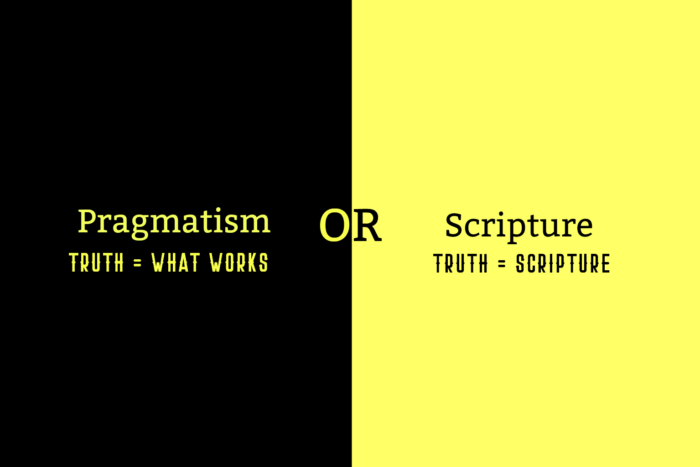
Something that has disturbed me greatly over the past ten or so years is the belief that if a message is positive it is good and righteous and if a message is negative it is bad and sinful.
Where did this belief come from? For it is certainly not from the Bible. (Actually I do know where this belief originates and there is a link further on in this post for those of you who would like to know, too.)
Jesus Himself tells us to look out for false teachers, to deny ourselves, to expect hatred from the world, explains the awful (and extremely negative) things to expect in the last days, and calls out and even severely criticizes false teachers. These would not be called positive messages by anyone’s standards.
Paul follows the example of Jesus and encourages us to confront fellow Christians living in sin, publicly calls out those who have left the faith, and encourages all of us to examine our lives for sin. Again, not positive by anyone’s standards.
Thankfully, both Jesus and Paul also abound in positive messages. The Bible provides the perfect balance of both because the Bible is the holy and inerrant Word of God.
Yesterday I heard an illustration by A.W. Tozer regarding this very thing. It had to do with the human body and how it stays healthy. It so impacted me that I actually did an online search to find it in print. I found it in a book called Gems from Tozer. Here is a brief portion of it–
The healthy soul, like the healthy blood stream, has its proper proportion of white and red cells. The red corpuscles are like faith: they carry the life-giving oxygen to every part of the body. The white cells are like disbelief: they pounce upon dead and toxic matter and carry it out to the drain. Thus the two kinds of cells working together keep the tissues in good condition. In the healthy heart there must be provision for keeping dead and poisonous matter out of the life stream. This the credulous person never suspects. He is all for faith.*
I have been thinking about this since I heard it and how applicable this comparison is to our spiritual lives. I even did some further research. What happens if our blood is out of balance? Without getting too technical, I thought I’d give a quick overview. The field of medicine is not my field (by any stretch of the imagination) so hopefully I get this right–
Too Many Red Blood Cells: The condition of the body creating too many red blood cells is called polycythemia vera. This slow-growing cancer actually can sometimes be symptom-free. But whether the person feels it or not, the blood is thickening and the blood flow is slowing down, which can lead to all kinds of issues, including death. You can be feeling great but still have this fatal disease. Thankfully, the medical world has developed a treatment for this cancer and those that have it can expect to live a fairly normal life as long as they make regular visits to the hospital for treatment. But the key here is that this can cause symptoms in a person or it might not but, either way, the over-production of these red blood cells will eventually cause death if there is no treatment.
Too Few Red Blood Cells: The condition of having too few blood cells is called anemia. Most of us have heard of this. It is a condition that leads to sluggishness and exhaustion. When the red blood cells are working properly they distribute oxygen and also carry carbon dioxide to your lungs from other parts of the body to be exhaled. If there aren’t enough red blood cells they can’t do their job and it keeps the body from functioning properly.
Too Many White Blood Cells: This condition is called leukocytosis. Elevated white blood cell count can be caused by many things–leukemia, infection, stress, immune system disorders, and smoking can all lead to an elevated count. High white blood cell count is an indication that something is wrong in the body and the body is working to fight against it.
Too Few White Blood Cells:Called leukopenia, this condition leaves your body at risk for other infections. This is the reason that some patients die from diseases and infections unrelated to their original diagnosis. Chemotherapy will often cause this and this is why cancer patients must be so concerned about catching colds. Without a proper white blood cell count, the body is in grave danger.
Okay, so let’s pretend that the red blood cells are the happy, positive thoughts and words and white blood cells are the negative, unpleasant thoughts and words.
We obviously need both in order to have a healthy soul.
If we only focus on the happy and the positive, we may not realize it, but we will be putting our souls at peril. We may feel great but, meanwhile, a deadly lethargy is invading our blood stream while we are blithely unaware. However, if we never focus on the good and positive things, we put ourselves at risk for an apathy in the faith. We will lack vibrance and joy. We won’t encourage, we won’t be lifting others up, and we will have a tired and lackluster faith. Both extremes lead to a severe and harmful imbalance.
And, of course, if we only focus on the negative and unpleasant, constantly talking only about how bad this world is and making sure everyone knows every false teacher that is out there, then this is an indication that something is not quite right with the health of our soul. We should never be so focused on the negative that we completely ignore the positive. But, on the opposite side of things (and where I believe more people are) are those that never want to focus on the negative and believe it to be a sin. These folks put their souls in grave danger. They have compromised their spiritual immune systems and are at risk to fall for all kinds of false teachings and wrong belief systems.
We can see that none of these are ideal. And just as we shouldn’t have too many or too little of red or white blood cells, we also shouldn’t be spiritually imbalanced when it comes to our focus on the positive or the negative.
As I mentioned above, I believe that there are few that focus on the negative. That type of life style has been so maligned that we have been almost (not quite but almost) led to believe that someone who focuses on the negative is not a Christian. And they most certainly aren’t a good Christian, even if they are one. After all, negative words aren’t kind words (according to most) and the majority of Christians don’t want to be known as the negative, unkind one (not understanding that “unkind” is being defined by this culture and not by it’s historical definition).
I think far more of us have bought the lie that positive messages are all we should speak. That negative words are sinful. This is what we are being taught in so many different ways. Whether it’s the latest “Christian” books, TV preachers, popular blogs and podcasts, social media, and even sometimes in our own churches, we find that we are praised by men for speaking the positive and uplifting and we are marginalized and condemned for speaking the negative and discerning. Ironically, and tragically, the truth seems to be irrelevant.
Of course, if we are serious about our walk with the Lord we desire to have a healthy soul. We want to be obedient and submissive children. So how do we do this? We do this by getting our instructions for living from the Bible and not from pop Christianity or humanistic psychology. What does the Bible teach? What does the Bible say?
2 Timothy 3:16 can get us started–
All Scripture is given by inspiration of God, and is profitable for doctrine, for reproof, for correction, for instruction in righteousness,
There we find both the positive (doctrine and instruction in righteousness) and negative (reproof and correction). If you have time, do a study of this topic in God’s Word.
For it is only by knowing what God has to say about this that we can defend ourselves against the plethora of lies that abound around the idea of “positive thinking” (which is an occult/new age teaching, by the way! find out more at this link).
We must have a balance of the positive and the negative; of both love and truth; both grace and justice. Leaning one way or the other will cripple our souls and hinder our work for Christ.
May we be filled with plenty of red blood cells–positive, encouraging, happy thoughts and words that carry life and oxygen to our souls and to the Body of Christ and may we also have a healthy amount of white blood cells–discerning the true from the false, diligently removing and warning of the toxins that threaten our own soul as well as the souls of other believers. For both are critical to cultivating a healthy soul.
*Tozer, A. W.. Gems from Tozer: Selections from the Writings of A.W. Tozer (Uqp Poetry) (Kindle Locations 625-629). Moody Publishers. Kindle Edition.
Other resources:
https://www.mayoclinic.org
http://blog.insidetracker.com/45247913486-high-white-blood-cell-count-what-you-should










